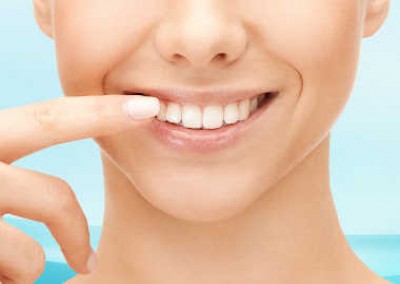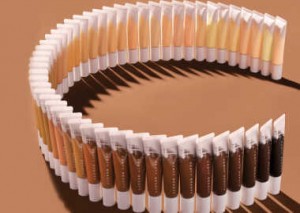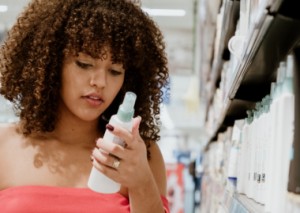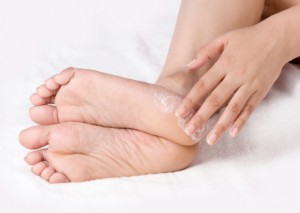
Article by BR Natalie
It's safe to say, many of us take our skin for granted. Well this week we've set ourselves the task of getting more people to start taking care of their skin sooner rather than later. From our teenage years to our early 20s our skin goes through a lot. Not only do we have to deal with breakouts and hormonal issues, it's also the ideal time to establish a skincare routine and set our skin on the right track to age gracefully.
But where on earth do you start? Well as always, Beauty review has you covered!
The basics.
 The skin is an external organ that forms a barrier to protect your internal organs against bacteria, and excessive UV sunlight. Your skin also plays a key role by regulating your body temperature. Essentially, your skin keeps your insides inside, and keeps whatever's on the outside, well, outside.
The skin is an external organ that forms a barrier to protect your internal organs against bacteria, and excessive UV sunlight. Your skin also plays a key role by regulating your body temperature. Essentially, your skin keeps your insides inside, and keeps whatever's on the outside, well, outside.
The skin is made up of layers. The thin outer layer is called the epidermis and the thicker inner layer is called the dermis. Below that is subcutaneous tissue, a.k.a fat. This is the good kind of fat though, it helps to conserve the body's heat and acts as a buffer to protect the organs from damage.
Throughout the skin are nerves that sense cold, heat, pain, pressure, and touch. The skin's sebaceous glands secrete sebum - oil that provides an effective barrier against the growth of bacteria. Deep within the skin are your sweat glands, which produce perspiration when you are too hot.
Know your skin type.
 Young skin is going to go through changes - it's inevitable. One month you might find yourself breaking out every day and find your makeup sliding off of your face. The next month you might find your makeup caking and your skin flaking. Until your hormones stabalise and you find yourself with more predictable skin, it pays to know your skin types, and to buy products to suit your current type.
Young skin is going to go through changes - it's inevitable. One month you might find yourself breaking out every day and find your makeup sliding off of your face. The next month you might find your makeup caking and your skin flaking. Until your hormones stabalise and you find yourself with more predictable skin, it pays to know your skin types, and to buy products to suit your current type.
To find out your skin type, try the tissue test - wipe your face with a clean tissue first thing in the morning.
- Normal Skin - there will be no trace of oil on the tissue and your skin will be elastic and supple. You'll have clean and smooth skin, good circulation and a healthy complexion. Don't opt out of a skincare routine if you have normal skin - although it will do well with minimal care, putting the effort in to your normal skin will have you looking fabulous as you age.
- Dry Skin - the tissue will be clean but your skin will feel dry to the touch and possibly flaky and tight. Dry skin tends to be sallow in tone and will wrinkle earlier.
- Oily Skin - the tissue will have spots of facial oil on it. Oily skin can be greasy, thick, coarse, and shiny, have enlarged pores, and tend to break into acne. On a plus point, oily skin doesn't give in to ageing or wrinkles easily!
- Combination Skin - the tissue will have traces of oil coming from your nose and forehead, but will be clean in the areas that touched your cheeks. Generally with combo skin, your cheeks will be prone to dryness and you'll need to use different products in different areas - ie a rich moisturiser on your dry cheeks, but an oil free moisturiser for the oily parts.
- Sensitive Skin. Sensitive skin is usually very dry and tends to feel quite tight. It will become inflamed and irritated easily. Typically, sensitive skin develops reddish and scaly areas, can be itchy and tingly, and is prone to breaking into spots. It is the most problematic and fragile type of skin, which needs a very special type of care.
Routine. Routine. Routine.
 Whatever your skin type, you'll want to establish a basic skincare routine, as early on as you can. We recommend everyone cleanse, tone, moisturise daily, and exfoliate once or twice a week.
Whatever your skin type, you'll want to establish a basic skincare routine, as early on as you can. We recommend everyone cleanse, tone, moisturise daily, and exfoliate once or twice a week.
Remember - even when you're having a bad skin day, stick with your routine!
Cleansing is a must for any skin type - clean skin is healthy skin! Blocked pores, cosmetics and environmental factors need to be removed from our skin to keep it looking it's best and for most people, just water won't cut the mustard! Look for a gentle cleanser that you can use daily. Facial wipes probably won't give you the deep cleansing you need, but they are great for on the go cleansing!
Toning restores the pH balance of the skin. It's not an essential step, but it is a useful one! Whatever your skin type, look for a gentle, alcohol free toner to avoid the 'tight face'.
Moisturising is a complete must! Healthy and great looking skin needs moisture. This is particularly important to remember if your young skin is oily - oily doesn't mean moisturised, so look for an oil-free moisturiser and give your skin the hydration it needs!
Exfoliating is a great way to remove the dead skin cells from the outermost layer of your skin. Exfoliation helps remove dry flaky skin and to smooth and even the skin tone. It's probably the most effective way to help combat teenage breakouts - just remember being gentle is key!
The new Clearasil Daily Clear Superfruits range are perfect for young skin - enriched with vitamin B3, raspberry and cranberry extracts and kind to skin ingredients, these dermatologist tested products offer effective cleansing and exfoliation.
Spots. Zits. Pimples. Blemishes. Mt Vesuvius.
 Pimples occur for a number of reasons - the overproduction of sebum, blocked pores (either blocked with dead skin cells or cosmetic/environmental debris) or a build up of bacteria.
Pimples occur for a number of reasons - the overproduction of sebum, blocked pores (either blocked with dead skin cells or cosmetic/environmental debris) or a build up of bacteria.
Every hair follicle is connected to sebaceous glands. Sebum from these glands usually travels up the hair shaft, out of the opening of the follicle and onto the outer surface of the skin. When your body produces too much sebum it combines with dead skin cells and solidifies. This usually causes a whitehead. If the follicle is wider than usual, debris may come in to the follicle and oxidise, causing blackheads.
We know spots are something of a right of passage for teenagers - but it doesn't make them any easier to deal with! Whatever your age and however often you break out, from the monthly 'period skin' to persistant and aggressive acne, know this - you are not alone. And it may take a lot of trial and error, but there are products out there that can make a difference.
Work from the inside out.
 Starting a healthy lifestyle early is a great way to maintain healthy skin. We can't guarantee you'll never breakout again, but following these tips will help you maintain the healthiest skin you can.
Starting a healthy lifestyle early is a great way to maintain healthy skin. We can't guarantee you'll never breakout again, but following these tips will help you maintain the healthiest skin you can.
- Drink at least 2 litres of water a day. Water carries nutrients throughout the body while helping to flush out toxins.
- Get your essential fatty acids. The omega-3 and omega-6 fatty acids may help to hydrate skin. They are known as essential because they are important for good health. Our bodies can't produce them so we have to obtain them from food. Sources include salmon, flaxseed oil, olive oil, seeds, and nuts.
- Up your antioxidents with superfruits. Antioxidants may counteract skin damage by helping to reduce some of the adverse effect of sun exposure and environmental pollution.
- Vitamin A: Helps maintain cell function. It's found in yellow and orange squash, sweet potatoes, rock melon, papaya, carrots, spinach and kale.
- Vitamin C: May help the body produce and maintain healthy skin. It's found in citrus fruits, berries, red and green capsicum, broccoli, and brussels sprouts.
- Zinc: An essential mineral in the diet. Too little zinc can lead to skin problems. Zinc is found in nuts, whole grains, legumes, yeast, and red meat.
- Vitamin E: Helps the body retain moisture. Vitamin E is often used topically to help prevent scarring and to moisturise dry skin patches. Dietary sources include many nuts and seeds.
- B complex vitamins: B vitamins are an important part of the diet. B3 in particular helps to keep skin healthy. Deficiency in vitamin B may result in some skin problems and even hair loss. B3 is found in liver, fish, chicken, lean red meat, nuts, whole grains, and dried beans.
Suncare.
 You are never too young nor too old to get proactive about protecting your skin from the sun. If you don't have a skincare routine that includes daily skin protection - start now!
You are never too young nor too old to get proactive about protecting your skin from the sun. If you don't have a skincare routine that includes daily skin protection - start now!
We may lust after the healthy sun kissed glow, but here's the simple truth - natural tans are not healthy. Exposure to the sun not only runs the risk of cancer, it also prematurely ages the skin. Whether it's Summer or Winter, if you're going to be exposing your skin to the sun you need to be using a broad spectrum sunscreen with at least a SPF of 15 (preferably higher).
If you have oily skin or are prone to breakouts look for 'oil-free' or 'non-comedogenic' on the label. Non-comedogenic means it won't blog your pores.
Remember, any amount of tan may equal skin damage. Reapply often and use liberally. Sunscreen comes off after a few hours of exercise or swimming. For good sun protection, apply sunscreen before you go outside, reapply every two to three hours and again after swimming, excessive perspiration and towelling, and don't skimp!
If you're going to be judicious about the expiration dates on just one product in your bathroom, make it your sunscreen. If it's out of date - replace it. When it comes to tanning - fake it to make it!
And there you have it - the Beauty Review guide to caring for, and feeling great in your young skin. So over to you - are you a teenager with changing skin? What are your main concerns? Or maybe you're now passed your twenties? Looking back, did you start good skin care habits early or is it something that came later? What tips would you pass on to your younger self about feeling good in your skin?
Get chatting below!
Thanks to Clearasil NZ for their skincare resources.














I think I have normal/combo skin but I have heeeaps of blackheads on my nose that I just can't get rid of :( will have to look into this product! I've noticed when I eat better and drink more water that my skin looks better